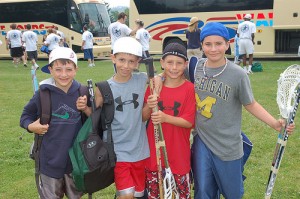Da genitori, sentiamo spesso previsioni sulla necessità dei nostri figli di prepararsi per un mondo nuovo e «globale». Mentre alcuni  spiegano che le radici delle interazioni globali sono state piantate secoli fa, le attuali tecnologie elettroniche e dei mezzi di trasporto danno la possibilità a persone che vivono in ogni parte del mondo di essere ancora più in contatto e interdipendenti. Come possiamo quindi preparare i nostri figli e fare in modo che facciano esperienze che contribuiscano alla loro istruzione globale?
spiegano che le radici delle interazioni globali sono state piantate secoli fa, le attuali tecnologie elettroniche e dei mezzi di trasporto danno la possibilità a persone che vivono in ogni parte del mondo di essere ancora più in contatto e interdipendenti. Come possiamo quindi preparare i nostri figli e fare in modo che facciano esperienze che contribuiscano alla loro istruzione globale?
Il viaggio, naturalmente, è un ottimo modo per aiutare i ragazzi ad accrescere il loro bagaglio culturale, ma anche fare campeggio contribuisce a promuovere in modi specifici il pensiero globale e diverse abilità. Il campo estivo è un posto in cui ragazzi provenienti da tutto il mondo, oltre che da diverse parti degli Stati Uniti, entrano in contatto tra loro, costruiscono amicizie che durano tutta la vita, fanno nuove esperienze e sperimentano la vita in comune. Nei campeggi AFSC, per esempio, anche se solo alcuni campeggiatori vengono dall’estero, essi portano tantissimo alla vita e alla comunità del campeggio nell’insieme.
 Tutti traggono beneficio dalla grande varietà di ragazzi presenti nel campeggio. I ragazzi possono praticare una lingua e impareranno sicuramente a conoscere usanze differenti, poiché avranno molto tempo per interagire giornalmente ed immergersi in culture diverse. E, cosa ancora più importante, impareranno a rapportarsi in modo rispettoso a persone con diversi punti di vista, che magari hanno modi diversi di affrontare le cose.
Tutti traggono beneficio dalla grande varietà di ragazzi presenti nel campeggio. I ragazzi possono praticare una lingua e impareranno sicuramente a conoscere usanze differenti, poiché avranno molto tempo per interagire giornalmente ed immergersi in culture diverse. E, cosa ancora più importante, impareranno a rapportarsi in modo rispettoso a persone con diversi punti di vista, che magari hanno modi diversi di affrontare le cose.
Nel suo libro, Growing Up Global: Raising Children to Be At Home in the World (Crescere in modo globale: allevare ragazzi che si sentano a casa nel mondo), Homa Sabet Tavangar dice che il primo passo verso lo sviluppo di una mentalità globale richiede di «assumere un atteggiamento mentale di disponibilità a fare amicizia ed essere un buon amico.» Farsi degli amici significa esercitare qualità universali quali l’empatia e il rispetto, e costruire amicizie durature al campeggio è una parte importante dell’esperienza totale.
I capigruppo e lo staff sono formati e pronti ad aiutare i campeggiatori a crescere in questo luogo, a sviluppare nuove abilità, se necessario, e rappresentano un modello di attenzione verso gli altri. La Tavangar spiega che le versioni della regola d’oro, ovvero «tratta gli altri come vorresti essere trattato tu», permeano qualsiasi cultura e tradizione religiosa, e sviluppa ampiamente questi concetti nel suo libro. Quando i ragazzi sposano i valori culturali dell’assistenza reciproca, impiegano umiltà, curiosità e compassione, e ciò li porta a farsi dei veri amici – e sono proprio queste cose che ci rendono cittadini del mondo.
Quindi, in qualsiasi posto del mondo andiamo, è l’esperienza di analizzare gli elementi delle diverse culture e di vedere ciò che le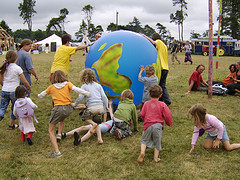 rende simili o diverse che ci prepara a relazionarci gli uni con gli altri. Per i ragazzi, un piccolo passo verso l’incontro con nuove culture può essere quello di superare la paura di cibi nuovi, o stare lontani da casa, in un campeggio in cui le cose sono «diverse» – dopotutto, ogni campo, ogni anno, ha il suo carattere e la sua cultura speciale. Ad esempio, il problema di imparare ad apprezzare nuovi cibi fa sì che molti campeggiatori rafforzino il loro legame, ed è proprio questo tipo di esperienza che prepara i ragazzi al futuro.
rende simili o diverse che ci prepara a relazionarci gli uni con gli altri. Per i ragazzi, un piccolo passo verso l’incontro con nuove culture può essere quello di superare la paura di cibi nuovi, o stare lontani da casa, in un campeggio in cui le cose sono «diverse» – dopotutto, ogni campo, ogni anno, ha il suo carattere e la sua cultura speciale. Ad esempio, il problema di imparare ad apprezzare nuovi cibi fa sì che molti campeggiatori rafforzino il loro legame, ed è proprio questo tipo di esperienza che prepara i ragazzi al futuro.
Crescere in maniera globale non vuol dire soltanto prepararsi a fare affari nell’economia mondiale. Vuol dire sentirsi a proprio agio e avere voglia di entrare in contatto con un padre keniota che allena una squadra di calcio locale, con un vicino turco con un suo modo di vestire particolare, o con un americano che richiede una consistente quantità di energia elettrica! In conclusione, vuol dire essere curiosi delle differenze invece di averne paura e tenere a fare amicizia con le diverse persone che incontriamo. Secondo gli psicologi, l’amicizia è strettamente legata alla salute dell’individuo e in ultima analisi anche alla capacità di sopravvivere – le amicizie sono quindi la chiave per sentirci a casa nel nostro pianeta.
Le nostre esperienze al campo estivo sono una componente chiave per allevare ragazzi fiduciosi e globalmente consapevoli. Le amicizie e le lezioni apprese al campo dureranno molto oltre la fine della stagione di campeggio, mentre i campeggiatori continuano ad estendere i loro orizzonti, a rimanere in contatto con i loro amici al di là del tempo e delle distanze geografiche e trovano le passioni della loro vita. Avete in progetto di allevare ragazzi globali e inserire l’esperienza del campeggio all’interno della loro preparazione? Avete letto Growing Up Global (Crescere in modo globale) o messo in pratica qualche consiglio della Tavangar? Ci farebbe piacere sapere in che modo il campeggio ha contribuito a definire la vostra visione del mondo!

 570-798-9831
570-798-9831
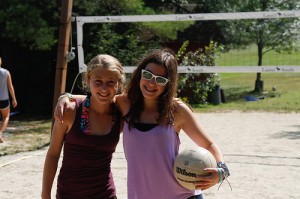
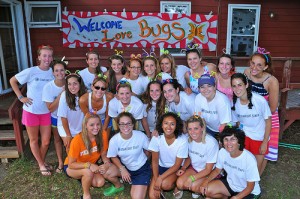
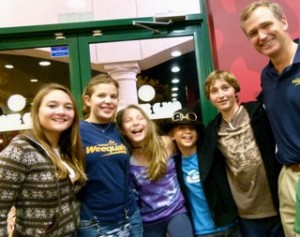
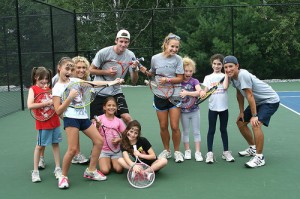

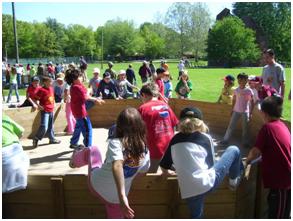
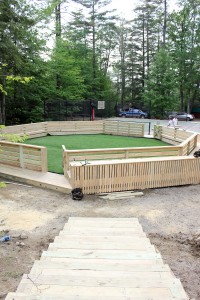


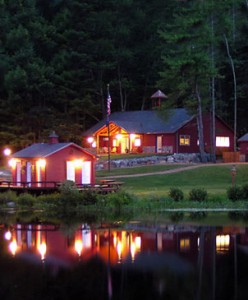
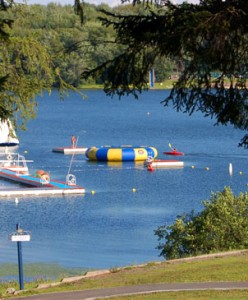

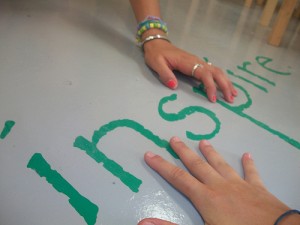
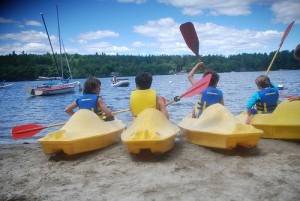


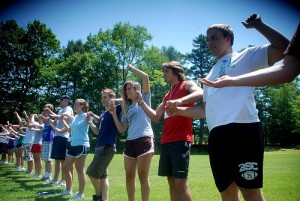
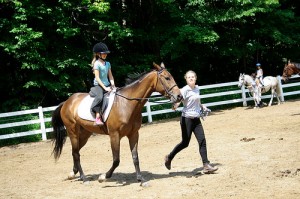
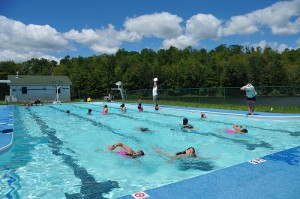
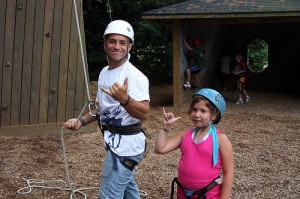
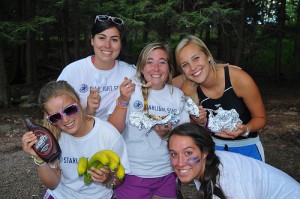
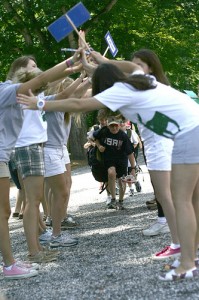
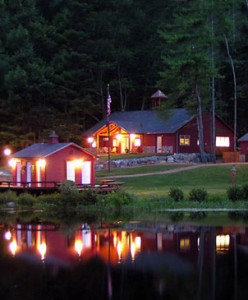
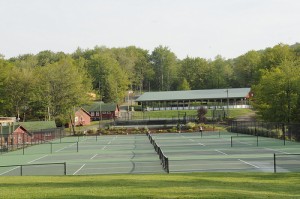
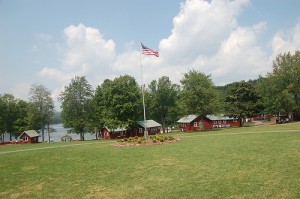
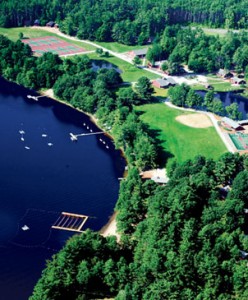
 6. Make your Visiting Day plans and book lodging. Yes, it’s true that your children haven’t even left for camp yet. But many hotels within the immediate vicinity of a camp often book months in advance. If you’re unsure of the lodging options near your children’s camp, contact the camp office.
6. Make your Visiting Day plans and book lodging. Yes, it’s true that your children haven’t even left for camp yet. But many hotels within the immediate vicinity of a camp often book months in advance. If you’re unsure of the lodging options near your children’s camp, contact the camp office. 4. Ensure you have all adequate sports and musical equipment in order: the wheels on the roller blades are oiled, the shin pads are the proper fit, and the guitar strings have been tightened. Just as if they are going off to rehearsal, your children’s sports equipment will receive as much of a workout at camp as it will at home. Sending your campers with properly maintained and fitting equipment can have a tremendous affect on the success of their summer.
4. Ensure you have all adequate sports and musical equipment in order: the wheels on the roller blades are oiled, the shin pads are the proper fit, and the guitar strings have been tightened. Just as if they are going off to rehearsal, your children’s sports equipment will receive as much of a workout at camp as it will at home. Sending your campers with properly maintained and fitting equipment can have a tremendous affect on the success of their summer. 3. Pack. It sounds so simple. Yet, for camp, it’s quite the production. Most camps strongly advise against packing any clothing that can’t withstand commercial laundry services. It’s also wise to remember that camps often downplay the importance of physical appearance, which means leaving the “dry clean only” and “one of kind” items at home is typically a good idea. Once you have your children’s bags packed, don’t forget to arrange for them to be delivered to camp by the designated date.
3. Pack. It sounds so simple. Yet, for camp, it’s quite the production. Most camps strongly advise against packing any clothing that can’t withstand commercial laundry services. It’s also wise to remember that camps often downplay the importance of physical appearance, which means leaving the “dry clean only” and “one of kind” items at home is typically a good idea. Once you have your children’s bags packed, don’t forget to arrange for them to be delivered to camp by the designated date.